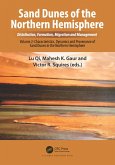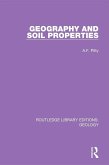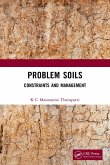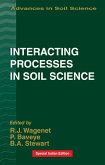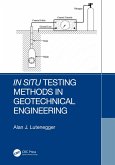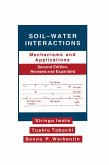Sand Dunes of the Northern Hemisphere: Distribution, Formation, Migration and Management (eBook, ePUB)
Volume 2: Characteristics, Dynamics and Provenance of Sand Dunes in the Northern Hemisphere
Redaktion: Qi, Lu; Squires, Victor R.; Gaur, Mahesh K.
168,95 €
168,95 €
inkl. MwSt.
Sofort per Download lieferbar

84 °P sammeln
168,95 €
Als Download kaufen

168,95 €
inkl. MwSt.
Sofort per Download lieferbar

84 °P sammeln
Jetzt verschenken
Alle Infos zum eBook verschenken
168,95 €
inkl. MwSt.
Sofort per Download lieferbar
Alle Infos zum eBook verschenken

84 °P sammeln
Sand Dunes of the Northern Hemisphere: Distribution, Formation, Migration and Management (eBook, ePUB)
Volume 2: Characteristics, Dynamics and Provenance of Sand Dunes in the Northern Hemisphere
Redaktion: Qi, Lu; Squires, Victor R.; Gaur, Mahesh K.
- Format: ePub
- Merkliste
- Auf die Merkliste
- Bewerten Bewerten
- Teilen
- Produkt teilen
- Produkterinnerung
- Produkterinnerung

Bitte loggen Sie sich zunächst in Ihr Kundenkonto ein oder registrieren Sie sich bei
bücher.de, um das eBook-Abo tolino select nutzen zu können.
Hier können Sie sich einloggen
Hier können Sie sich einloggen
Sie sind bereits eingeloggt. Klicken Sie auf 2. tolino select Abo, um fortzufahren.

Bitte loggen Sie sich zunächst in Ihr Kundenkonto ein oder registrieren Sie sich bei bücher.de, um das eBook-Abo tolino select nutzen zu können.
The application of recently available high-resolution satellite data for mapping and change detection and a summary of advances in techniques for characterizing the mineralogy of sand is explained.
- Geräte: eReader
- mit Kopierschutz
- eBook Hilfe
Andere Kunden interessierten sich auch für
![Sand Dunes of the Northern Hemisphere: Distribution, Formation, Migration and Management (eBook, PDF) Sand Dunes of the Northern Hemisphere: Distribution, Formation, Migration and Management (eBook, PDF)]() Sand Dunes of the Northern Hemisphere: Distribution, Formation, Migration and Management (eBook, PDF)168,95 €
Sand Dunes of the Northern Hemisphere: Distribution, Formation, Migration and Management (eBook, PDF)168,95 €![Geography and Soil Properties (eBook, ePUB) Geography and Soil Properties (eBook, ePUB)]() A. F. PittyGeography and Soil Properties (eBook, ePUB)36,95 €
A. F. PittyGeography and Soil Properties (eBook, ePUB)36,95 €![Problem Soils (eBook, ePUB) Problem Soils (eBook, ePUB)]() K C Manorama ThampattiProblem Soils (eBook, ePUB)47,95 €
K C Manorama ThampattiProblem Soils (eBook, ePUB)47,95 €![Interacting Processes in Soil Science (eBook, ePUB) Interacting Processes in Soil Science (eBook, ePUB)]() R. J. WagenetInteracting Processes in Soil Science (eBook, ePUB)40,95 €
R. J. WagenetInteracting Processes in Soil Science (eBook, ePUB)40,95 €![In Situ Testing Methods in Geotechnical Engineering (eBook, ePUB) In Situ Testing Methods in Geotechnical Engineering (eBook, ePUB)]() Alan J. LuteneggerIn Situ Testing Methods in Geotechnical Engineering (eBook, ePUB)52,95 €
Alan J. LuteneggerIn Situ Testing Methods in Geotechnical Engineering (eBook, ePUB)52,95 €![Technology Transfer of Plant Biotechnology (eBook, ePUB) Technology Transfer of Plant Biotechnology (eBook, ePUB)]() Technology Transfer of Plant Biotechnology (eBook, ePUB)49,95 €
Technology Transfer of Plant Biotechnology (eBook, ePUB)49,95 €![Soil-Water Interactions (eBook, ePUB) Soil-Water Interactions (eBook, ePUB)]() IwataSoil-Water Interactions (eBook, ePUB)303,95 €
IwataSoil-Water Interactions (eBook, ePUB)303,95 €-
-
-
The application of recently available high-resolution satellite data for mapping and change detection and a summary of advances in techniques for characterizing the mineralogy of sand is explained.
Dieser Download kann aus rechtlichen Gründen nur mit Rechnungsadresse in A, B, BG, CY, CZ, D, DK, EW, E, FIN, F, GR, HR, H, IRL, I, LT, L, LR, M, NL, PL, P, R, S, SLO, SK ausgeliefert werden.
Produktdetails
- Produktdetails
- Verlag: Taylor & Francis eBooks
- Seitenzahl: 308
- Erscheinungstermin: 15. Dezember 2023
- Englisch
- ISBN-13: 9781000589054
- Artikelnr.: 69128272
- Verlag: Taylor & Francis eBooks
- Seitenzahl: 308
- Erscheinungstermin: 15. Dezember 2023
- Englisch
- ISBN-13: 9781000589054
- Artikelnr.: 69128272
- Herstellerkennzeichnung Die Herstellerinformationen sind derzeit nicht verfügbar.
Professor Lu Qi is Chief Scientist and Director of the Institute of Desertification Studies (IDS) in Beijing. The IDS is one of two such Institutes in the world. Dr. Lu has a PhD in Ecology from the Chinese Academy of Sciences, Beijing and is a specialist in Dryland Sustainable Development; Integrated ecosystem management/Desert Ecology and Combating desertification and Land degradation. He is the recipient of several prestigious awards: Three National Awards on Scientific & Technological Progress (Second Class, 2006/2009/2010) PRC National Award on International Science & Technology Cooperation (as Chinese Partner), 2008; Ningxia Hui Autonomous Region Award on Scientific & Technological Progress (First Class), 2008; and UNDP Best Practices Award on indigenous technology in combating desertification and mitigating the effect of drought. Dr. Lu is author/editor of 20 books notably A Study of Kumtagh Desert (in Chinese). Beijing: Science Press, 2012; Desert Plants in China (Illustrated Handbook, in Chinese). Beijing: China Forestry Publishing House, 2012; Rangeland Degradation and Recovery in China's Pastoral Lands, CABI, UK, 2009; Studies on Populus euphratica Forest in Ejina Oasis. Beijing: Science Press, 2009. Regional Review of UNCCD Implementation and Best Practices in Asia and the Pacific-Case Studies from Australia, China, Mongolia, Thailand and Viet Nam. Beijing: Chinese Environmental Science Press, 2005 and 180 papers (mostly in Chinese). Dr. Mahesh K. Gaur is an Indian, who is working at the ICAR-Central Arid Zone Research Institute, Jodhpur, India as a Principal Scientist, since September 2020. He worked as Senior Scientist from 2012 to 2020. He specializes in aridlands geography and the application of satellite remote sensing, GIS and digital image processing for natural resources mapping, management and assessment. He also researches drought, desertification, land degradation, indigenous knowledge systems, and the socio-economic milieu of the Thar Desert of India. Prior to this, he has worked as an Associate Professor for more than 13 years with the Department of Higher Education, Government of Rajasthan State, India and has also worked at Sandhan, Jaipur, IIM Ahmedabad, IHS Hyderabad and IN-RIMT in various capacities. He has also completed sponsored studies for ICAR, ISRO, SAC, UGC, and ICARDA. He has published 50 research papers in national and international research journals, 50 conference papers, 45 book chapters, five popular articles, and eight books. He is a member of a number of national and international scientific organizations, such as the Association of American Geographers and the Society for Conservation Biology, and several editorial boards of journals. He has been to South Africa, Namibia and Costa Rica on academic assignments. He is awarded the Citizen Karamveer Award 2011 by iCONGO for working in the field of Higher Education, Environment and Technology Applications for Community Upliftment; the Millennium Award for working in the field of Environment, and prestigious recognitions by the UGC of India and Scientific Assembly of the International Committee on Space Research (COSPAR). Dr. Victor R. Squires is a Distinguished Guest Professor in the Institute of Desertification Studies, Beijing. He is an Australian who as a young man studied animal husbandry and rangeland ecology. He has a PhD in Rangeland Science from Utah State University, USA. He is a former Foundation Dean of the Faculty of Natural Resource Management at the University of Adelaide, Australia where he worked for 15 years after a 22 year career in Australia's CSIRO. He is author/editor of 22 books on Drylands, Desertification, Ecological Restoration from such publishers as CRC Press, Springer, Routledge and Kluwer Academic and numerous research papers and invited book chapters. Since retirement from the University of Adelaide Dr. Squires was a Visiting Fellow in the East West Center, Hawaii, and an Adjunct Professor in the University of Arizona, Tucson and at the Gansu Agricultural University, Lanzhou, China. He has been a consultant to World Bank, Asian Development and various UN agencies in Africa, China, Central Asia and the Middle East. He was awarded the 2008 International Award and Gold Medal for International Science and Technology Cooperation by the Government of China and in 2011 was awarded the Friendship Award by the government of China. The Gold Medal is the highest award for foreigners. In 2015 Dr. Squires was honoured by the Society for Range Management (USA) with an Outstanding Achievement Award. Dr. Victor Squires was recognised in the 2021 Queen's birthday Honours with a member of the Order of Australia (AM), for services to ecology, especially rangelands.
SAND MOBILITY AND ENCROACHMENT. Sand Dunes of the South-eastern Sahara of
Morocco: Genesis Morphodynamic and Socioeconomic Impact of Sand
Encroachment. Sand Dunes and Sand Encroachment in Moroccan Atlantic Sahara,
Current Situation, Threat and Perspective. Sand Dunes in Sudan: A
Commentary on Origin, Development and Threats Posed. Genesis, Distribution
and Economic Impact of Dune Formations in Nigeria. Human and Climate
Impacts on the Mobility of Nizzana Sand Dunes, Israel. Sand Dune Migration
as a Source of Environmental Risk to El-Dakhala Oasis-The Western
Desert-Egypt. Sand Dune Creeping and its Consequence on Cultivated Land,
Development Projects and Protected Areas in Siwa Oasis, Western Desert,
Egypt. SAND DUNE LANDSCAPES DISTRIBUTION, FORMATION AND MANAGEMENT.
Geomorphology and Sustainable Management for the Sand Dunes of Kuwait.
Barchan Dunes Properties in the Middle East. Barchan Dunes in Egypt:
Distribution and Formation. Dune Massifs of Russia. Aeolian Sand Dunes in
the Permafrost Zone of Russia. Deserts, Sand Dunes and Sand Seas of Iran.
Sand Supply System to Dunes and Ecological Aspects in Tottori Sand Dunes,
Japan, the Temperate Humid and Tectonically Active Area. CONCLUDING
THOUGHTS: COPING WITH AN UNKNOWN FUTURE FROM A LITTLE-KNOWN PAST. The
Karakum and Kyzylkum Sand Seas: Linking Geomorphology and Paleoclimate.
Sand Dunes on a Warmer and Drier Earth: Uniting Perspectives, Synthesis and
Conclusions.
Morocco: Genesis Morphodynamic and Socioeconomic Impact of Sand
Encroachment. Sand Dunes and Sand Encroachment in Moroccan Atlantic Sahara,
Current Situation, Threat and Perspective. Sand Dunes in Sudan: A
Commentary on Origin, Development and Threats Posed. Genesis, Distribution
and Economic Impact of Dune Formations in Nigeria. Human and Climate
Impacts on the Mobility of Nizzana Sand Dunes, Israel. Sand Dune Migration
as a Source of Environmental Risk to El-Dakhala Oasis-The Western
Desert-Egypt. Sand Dune Creeping and its Consequence on Cultivated Land,
Development Projects and Protected Areas in Siwa Oasis, Western Desert,
Egypt. SAND DUNE LANDSCAPES DISTRIBUTION, FORMATION AND MANAGEMENT.
Geomorphology and Sustainable Management for the Sand Dunes of Kuwait.
Barchan Dunes Properties in the Middle East. Barchan Dunes in Egypt:
Distribution and Formation. Dune Massifs of Russia. Aeolian Sand Dunes in
the Permafrost Zone of Russia. Deserts, Sand Dunes and Sand Seas of Iran.
Sand Supply System to Dunes and Ecological Aspects in Tottori Sand Dunes,
Japan, the Temperate Humid and Tectonically Active Area. CONCLUDING
THOUGHTS: COPING WITH AN UNKNOWN FUTURE FROM A LITTLE-KNOWN PAST. The
Karakum and Kyzylkum Sand Seas: Linking Geomorphology and Paleoclimate.
Sand Dunes on a Warmer and Drier Earth: Uniting Perspectives, Synthesis and
Conclusions.
SAND MOBILITY AND ENCROACHMENT. Sand Dunes of the South-eastern Sahara of
Morocco: Genesis Morphodynamic and Socioeconomic Impact of Sand
Encroachment. Sand Dunes and Sand Encroachment in Moroccan Atlantic Sahara,
Current Situation, Threat and Perspective. Sand Dunes in Sudan: A
Commentary on Origin, Development and Threats Posed. Genesis, Distribution
and Economic Impact of Dune Formations in Nigeria. Human and Climate
Impacts on the Mobility of Nizzana Sand Dunes, Israel. Sand Dune Migration
as a Source of Environmental Risk to El-Dakhala Oasis-The Western
Desert-Egypt. Sand Dune Creeping and its Consequence on Cultivated Land,
Development Projects and Protected Areas in Siwa Oasis, Western Desert,
Egypt. SAND DUNE LANDSCAPES DISTRIBUTION, FORMATION AND MANAGEMENT.
Geomorphology and Sustainable Management for the Sand Dunes of Kuwait.
Barchan Dunes Properties in the Middle East. Barchan Dunes in Egypt:
Distribution and Formation. Dune Massifs of Russia. Aeolian Sand Dunes in
the Permafrost Zone of Russia. Deserts, Sand Dunes and Sand Seas of Iran.
Sand Supply System to Dunes and Ecological Aspects in Tottori Sand Dunes,
Japan, the Temperate Humid and Tectonically Active Area. CONCLUDING
THOUGHTS: COPING WITH AN UNKNOWN FUTURE FROM A LITTLE-KNOWN PAST. The
Karakum and Kyzylkum Sand Seas: Linking Geomorphology and Paleoclimate.
Sand Dunes on a Warmer and Drier Earth: Uniting Perspectives, Synthesis and
Conclusions.
Morocco: Genesis Morphodynamic and Socioeconomic Impact of Sand
Encroachment. Sand Dunes and Sand Encroachment in Moroccan Atlantic Sahara,
Current Situation, Threat and Perspective. Sand Dunes in Sudan: A
Commentary on Origin, Development and Threats Posed. Genesis, Distribution
and Economic Impact of Dune Formations in Nigeria. Human and Climate
Impacts on the Mobility of Nizzana Sand Dunes, Israel. Sand Dune Migration
as a Source of Environmental Risk to El-Dakhala Oasis-The Western
Desert-Egypt. Sand Dune Creeping and its Consequence on Cultivated Land,
Development Projects and Protected Areas in Siwa Oasis, Western Desert,
Egypt. SAND DUNE LANDSCAPES DISTRIBUTION, FORMATION AND MANAGEMENT.
Geomorphology and Sustainable Management for the Sand Dunes of Kuwait.
Barchan Dunes Properties in the Middle East. Barchan Dunes in Egypt:
Distribution and Formation. Dune Massifs of Russia. Aeolian Sand Dunes in
the Permafrost Zone of Russia. Deserts, Sand Dunes and Sand Seas of Iran.
Sand Supply System to Dunes and Ecological Aspects in Tottori Sand Dunes,
Japan, the Temperate Humid and Tectonically Active Area. CONCLUDING
THOUGHTS: COPING WITH AN UNKNOWN FUTURE FROM A LITTLE-KNOWN PAST. The
Karakum and Kyzylkum Sand Seas: Linking Geomorphology and Paleoclimate.
Sand Dunes on a Warmer and Drier Earth: Uniting Perspectives, Synthesis and
Conclusions.

